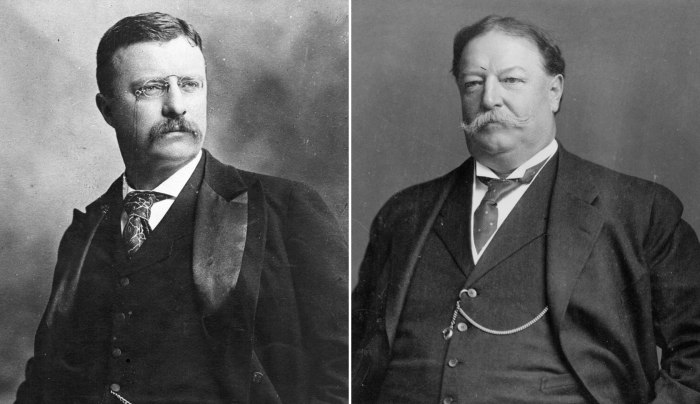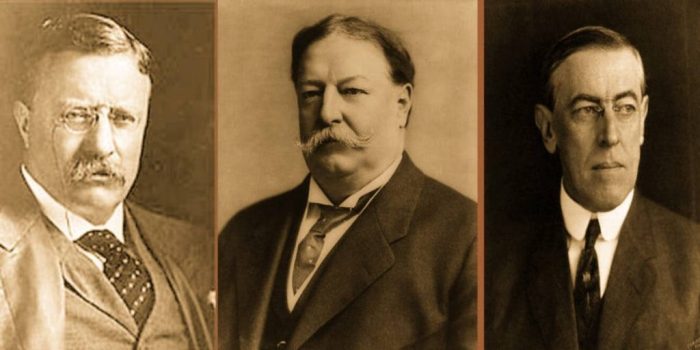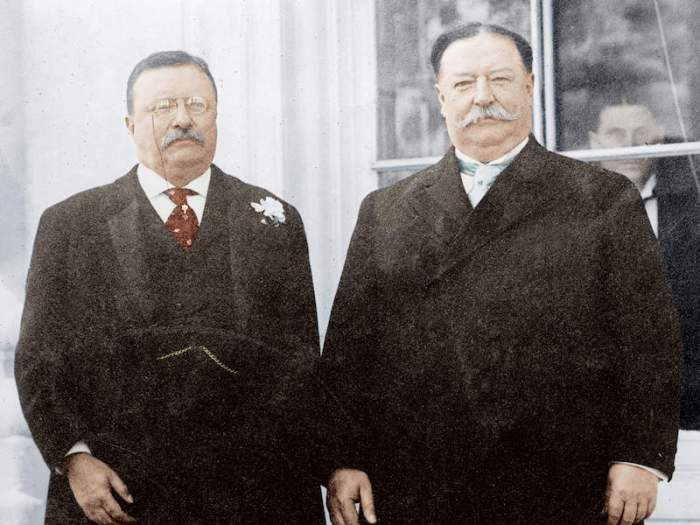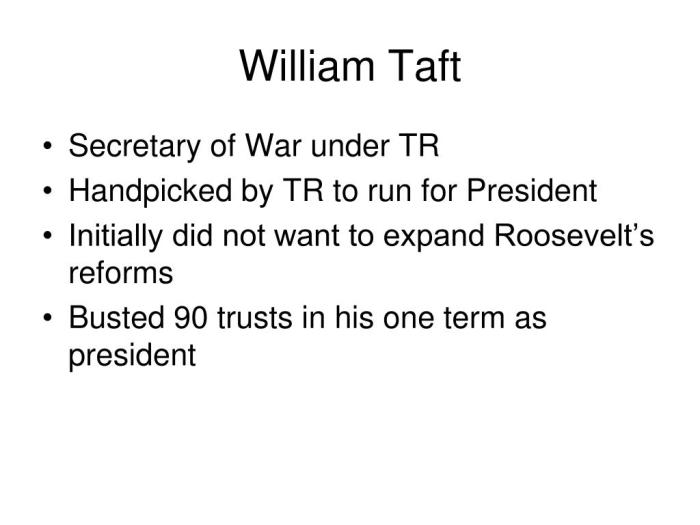Theodore Roosevelt warned William Howard Taft that tariff reform would lead to disaster, and he was right. Taft ignored Roosevelt’s advice, and the result was a political and economic catastrophe. This article will explore the historical context of Roosevelt’s warning, the different perspectives on tariff reform at the time, and the consequences of Taft’s decision to ignore Roosevelt’s advice.
Theodore Roosevelt’s Warning to William Howard Taft on Tariff Reform: Theodore Roosevelt Warned William Howard Taft That Tariff Reform Would

Theodore Roosevelt’s presidency (1901-1909) was marked by progressive reforms and a commitment to economic fairness. One of the key issues during his administration was the debate over tariff reform, which pitted Roosevelt against his successor, William Howard Taft.
Historical Context
The early 20th century United States was experiencing rapid industrialization and economic growth. Tariffs, which are taxes on imported goods, were a major source of revenue for the government. However, there was growing sentiment among progressives that tariffs were unfairly benefiting certain industries at the expense of consumers and the broader economy.
William Howard Taft, a conservative Republican, was elected president in 1908. Taft had a different view on tariffs than Roosevelt, believing that they were necessary to protect American industries from foreign competition.
Tariff Reform
Roosevelt supported tariff reform, arguing that it would lower prices for consumers and stimulate economic growth. Taft, on the other hand, opposed tariff reform, fearing that it would harm American industries and lead to job losses.
Roosevelt’s Warning, Theodore roosevelt warned william howard taft that tariff reform would
Before leaving office, Roosevelt warned Taft that tariff reform was a “must.” He predicted that if Taft did not heed his warning, the Republican Party would lose the support of the American people.
Roosevelt’s concerns were based on his belief that the existing tariff system was unfair and that it was creating a monopoly for certain industries. He argued that tariff reform was necessary to protect the interests of the American people.
Taft’s Response
Taft did not heed Roosevelt’s warning. He vetoed a tariff reform bill passed by Congress in 1909. Taft’s decision led to a split within the Republican Party and contributed to his defeat in the 1912 presidential election.
Historical Significance
The debate over tariff reform during Roosevelt and Taft’s presidencies was a significant event in American history. It reflected the growing tension between progressive and conservative forces within the Republican Party and highlighted the importance of economic fairness.
Roosevelt’s warning to Taft proved to be prophetic. The Republican Party lost the support of the American people and was defeated in the 1912 presidential election. The episode is a reminder of the importance of listening to warnings and taking bold action to address economic inequality.
Clarifying Questions
What was the historical context of Roosevelt’s warning to Taft?
Roosevelt’s warning to Taft came at a time of great economic and political change in the United States. The country was in the midst of a period of rapid industrialization, and there was a growing debate about the role of government in the economy.
Roosevelt was a progressive who believed that the government should play an active role in regulating the economy and protecting consumers. Taft, on the other hand, was a conservative who believed that the government should generally stay out of the economy.
What were the different perspectives on tariff reform at the time?
There were two main perspectives on tariff reform at the time. One view was that tariffs were necessary to protect American businesses from foreign competition. The other view was that tariffs were a burden on consumers and businesses and that they should be reduced or eliminated.
What were the consequences of Taft’s decision to ignore Roosevelt’s warning?
The consequences of Taft’s decision to ignore Roosevelt’s warning were significant. The tariff reform bill that Taft signed into law in 1909 raised prices for consumers, hurt American businesses, and led to a decline in economic growth. The political fallout from the tariff reform bill was also significant.
It led to a split in the Republican Party and contributed to Taft’s defeat in the 1912 presidential election.


